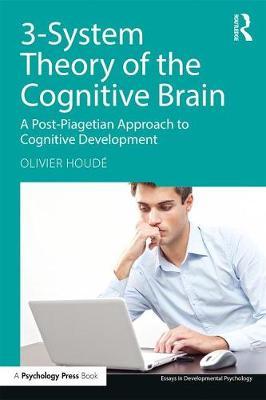3-System Theory of the Cognitive Brain

3-System Theory of the Cognitive Brain
Spanning the long-term history of psychology, from Plato and Aristotle to more current experimental psychology, this pioneering work goes beyond the approaches of Kahneman (i.e. System 1 theory) and Piaget (i.e. System 2 theory) to put forward a theory in which the inhibitory-control system (i.e. System 3) takes precedence. Houde argues that the brain contains a third control system located in the prefrontal cortex which is dedicated to inhibiting Kahneman's intuitive heuristics system and activating Piaget's logical algorithms system anywhere in the brain on a case-by-case basis, depending on the goal and context of the task. 3-System Theory of the Cognitive Brain simultaneously explains the early logical abilities discovered in babies, the dynamic, strategic and non-linear process of cognitive development in children, and the fast heuristics and biases observed in adults. Houde considers the exciting implications of this theory on neuro-education using examples from the classroom.
This book is essential reading for students and researchers in cognitive development and education, child psychology, reasoning and neurosciences.
PRP: 335.38 Lei
Acesta este Pretul Recomandat de Producator. Pretul de vanzare al produsului este afisat mai jos.
301.84Lei
301.84Lei
335.38 LeiIndisponibil
Descrierea produsului
Spanning the long-term history of psychology, from Plato and Aristotle to more current experimental psychology, this pioneering work goes beyond the approaches of Kahneman (i.e. System 1 theory) and Piaget (i.e. System 2 theory) to put forward a theory in which the inhibitory-control system (i.e. System 3) takes precedence. Houde argues that the brain contains a third control system located in the prefrontal cortex which is dedicated to inhibiting Kahneman's intuitive heuristics system and activating Piaget's logical algorithms system anywhere in the brain on a case-by-case basis, depending on the goal and context of the task. 3-System Theory of the Cognitive Brain simultaneously explains the early logical abilities discovered in babies, the dynamic, strategic and non-linear process of cognitive development in children, and the fast heuristics and biases observed in adults. Houde considers the exciting implications of this theory on neuro-education using examples from the classroom.
This book is essential reading for students and researchers in cognitive development and education, child psychology, reasoning and neurosciences.
Detaliile produsului









